Cybersecurity or AI: The Easier Path Revealed
As we move closer to 2025, many professionals and students are asking themselves an important question: Should I pursue a career in cybersecurity or artificial intelligence (AI)? With technology advancing at an incredible pace, both fields are growing rapidly and offer unique opportunities. Choosing between the two, however, is not always straightforward.
Cybersecurity plays a critical role in protecting data, systems, and digital infrastructure from ever-evolving threats, while AI is driving innovation across industries—from healthcare and finance to marketing and automation. Understanding the core differences, challenges, and rewards of each path is essential before making a decision.
To figure out which career might be easier or more rewarding, it’s important to consider both the present demand for skills and the future potential of each field. This guide will explore the key aspects of cybersecurity and AI, giving you clear insights to help you make a wise and informed choice about your career direction.
Cybersecurity or AI: Which Career Path Should You Choose in 2025?
As we move closer to 2025, many professionals and students are asking themselves an important question: Should I pursue a career in cybersecurity or artificial intelligence (AI)? With technology advancing at an incredible pace, both fields are growing rapidly and offer unique opportunities.
Choosing between the two, however, is not always straightforward. Cybersecurity plays a critical role in protecting data, systems, and digital infrastructure from ever-evolving threats, while AI is driving innovation across industries—from healthcare and finance to marketing and automation. Understanding the core differences, challenges, and rewards of each path is essential before making a decision.
To figure out which career might be easier or more rewarding, it’s important to consider both the present demand for skills and the future potential of each field. This guide will explore the key aspects of cybersecurity and AI, giving you clear insights to help you make a wise and informed choice about your career direction.
Key Takeaways
- Understanding the basics of both cybersecurity and artificial intelligence is key.
- The need for tech experts is growing fast.
- Both fields have their own hurdles and opportunities.
- Choosing wisely means looking at today and tomorrow.
- Exploring the easier path can help you pick the right career.
The Current Landscape of Tech Career Choices
The tech sector is changing fast, thanks to the need for experts in key areas. As we look ahead to 2025, the choices in tech careers are getting more complex.

There’s a big need for technical experts now. Cyber threats are getting smarter, and AI is moving fast. This means more people are needed to keep things safe.
The Growing Demand for Technical Specialists
More and more people are needed in cybersecurity. Many experts think AI helps keep things secure. This makes AI in cybersecurity a must, not just a trend.
- The market for AI in cybersecurity is projected to reach over $60 billion by 2028.
- 80% of cybersecurity professionals believe AI is beneficial to security.
- The demand for technical specialists in AI and cybersecurity is expected to continue growing.
Why Cybersecurity and AI Stand Out in 2025
Cybersecurity and AI are key in tech careers because they shape the future. Cyber threats are getting worse, so we need better security. AI is also changing many industries, making it very valuable.
Cybersecurity trends show we’re relying more on AI for security. This mix of cybersecurity and AI is opening up new career paths. It’s creating chances for those who can work in both areas.
- Cybersecurity professionals are in high demand due to the increasing number of cyber threats.
- AI is being increasingly used to enhance cybersecurity measures.
- The intersection of AI and cybersecurity is creating new and exciting career opportunities.
Understanding the Basics: What is Cybersecurity?
Cybersecurity is vital in today’s world. It protects us from cyber threats that keep changing. It keeps computer systems, networks, and important information safe from unauthorized access or harm.
Cybersecurity is more than just technology. It also involves people and processes. To be effective, you need to know its core concepts and principles. This means spotting and stopping threats, and setting up defenses against cyber attacks.
Core Concepts and Principles
Cybersecurity focuses on keeping information safe. It’s about making sure information is private, not changed without permission, and available when needed. This is known as the CIA triad.
- Confidentiality: Making sure only the right people can see information.
- Integrity: Keeping information from being changed without permission.
- Availability: Making sure information is there when you need it.
To follow these principles, we use cybersecurity solutions. These include firewalls, intrusion detection systems, encryption, and access controls.
Key Areas Within Cybersecurity
Cybersecurity covers many areas, each focusing on different parts of protection. Some key areas are:
| Area | Description |
|---|---|
| Network Security | Keeping networks safe from unauthorized access and threats. |
| Application Security | Making sure applications are safe from cyber threats. |
| Data Security | Protecting sensitive data from unauthorized access or theft. |
The benefits of cybersecurity are many. It keeps information safe, prevents financial loss, and keeps customer trust. But, new cyber threats keep coming, so we must stay alert and adapt.
“Cybersecurity is not just a technical issue, it’s a business issue. It’s about understanding the risks and taking a holistic approach to managing them.” –

In conclusion, knowing the basics of cybersecurity is key today. By understanding its core concepts, principles, and main areas, we can better defend against cyber threats.
Demystifying Artificial Intelligence
AI is getting more advanced, and understanding it is key for everyone. It’s about making computers do things that humans do, like learn and solve problems. This includes making decisions on their own.

Fundamental Concepts of AI
AI is all about creating special programs for computers. These programs let machines do tasks without being told exactly how. Machine learning is a big part of AI. It helps computers learn from data using different methods.
Deep learning is a part of machine learning. It uses special networks to understand complex data. This has improved things like recognizing images and voices.
Major Branches and Applications
AI has many areas and uses in different fields. Some main ones are:
- Machine learning and deep learning
- Natural Language Processing (NLP)
- Computer Vision
- Robotics
In cybersecurity, AI helps find threats and respond to them. The importance of AI in security is its quick and accurate analysis of data. This helps spot dangers before they happen.
The AI implementation in security also includes predictive analytics. AI can predict security breaches by looking at past data and known threats.
Educational Requirements for Cybersecurity Careers
Starting a career in cybersecurity requires both formal education and specialized training. It’s key to know the different paths you can take. This knowledge helps you prepare for the changing world of cybersecurity.
Formal Education Pathways
While a degree isn’t always needed, it can be very helpful. Degrees in computer science, information assurance, or cybersecurity are great. Colleges and universities now offer specific programs in cybersecurity. These programs teach the basics of security, risk management, and best practices cybersecurity.
Some important areas to study include:
- Network security
- Cryptography
- Threat analysis
- Incident response
Certifications That Matter
Certifications show you’re serious about cybersecurity. They’re important for your career. Certifications like CompTIA Security+, CISSP, and CEH are well-respected. They prove you know how to use cybersecurity tools and protect systems.
| Certification | Description | Level |
|---|---|---|
| CompTIA Security+ | Covers security concepts, threats, and risk management | Entry-Level |
| CISSP | Demonstrates advanced knowledge in security practices and principles | Advanced |
| CEH | Validates skills in identifying vulnerabilities and weaknesses | Specialized |
Self-Learning Options
Self-learning is also critical for cybersecurity professionals. Cyber threats change fast, so staying current is important. Online courses, workshops, and conferences help you keep up. Self-learning lets you learn about new technologies and techniques, like implementing artificial intelligence in cybersecurity.
There are many online resources for learning. You can find:
- Online courses on platforms like Coursera and Udemy
- Industry blogs and publications
- Webinars and virtual conferences

Learning Curve for Artificial Intelligence Professionals
To succeed in AI, one must be committed to ongoing learning and professional development. The field of artificial intelligence is rapidly evolving, with new technologies and methodologies emerging continuously.
Academic Prerequisites
A strong foundation in mathematics and computer science is essential for a career in AI. This typically involves formal education, such as a degree in computer science, mathematics, or a related field.
The academic prerequisites provide a solid base in algorithms, data structures, and software design, which are critical for AI development.
Technical Skills Required
AI professionals require a range of technical skills, including proficiency in programming languages such as Python, Java, or C++. Knowledge of machine learning frameworks and data analysis tools is also critical.
Understanding how to apply AI in various contexts, such as cybersecurity, can enhance one’s career prospects. The integration of AI in cybersecurity represents a significant area of growth, with AI being used to improve threat detection and response.
Ongoing Learning Challenges
The AI field is characterized by rapid change, with new techniques and technologies being developed continuously. As such, AI professionals face the challenge of staying up-to-date with the latest advancements.
This requires a commitment to ongoing learning and professional development, through activities such as attending conferences, participating in online courses, and engaging with the AI community.
By comparing cybersecurity vs artificial intelligence, it’s clear that both fields require a strong technical foundation and ongoing learning. AI professionals must be adept at adapting to new technologies and methodologies.
Which is Easy: Cybersecurity or Artificial Intelligence?
The tech world is split between cybersecurity and artificial intelligence. But which one is easier to get into? Both fields need a lot of knowledge and skills. Yet, some factors make one more welcoming to newcomers than the other.
Entry-Level Knowledge Requirements Compared
Cybersecurity is about keeping computer systems and networks safe from threats. You can learn the basics through courses on computer systems, networking, and security. Artificial intelligence, though, deals with complex algorithms and data analysis. It requires a strong grasp of programming, mathematics, and data structures.
A report by Cybersecurity Ventures shows a big demand for cybersecurity experts. By 2025, there could be a shortage of 3.5 million professionals. This need has led to more educational programs and training in cybersecurity.
“The cybersecurity industry is facing a significant shortage of skilled professionals, making it an attractive career path for those looking to enter the tech industry.”
Mathematical and Programming Skill Demands
Artificial intelligence needs advanced math skills like linear algebra, calculus, and probability. You also need to know programming languages such as Python, Java, and C++. Cybersecurity, while it does require programming, focuses more on security frameworks, threat analysis, and how to mitigate threats.
| Skill | Cybersecurity | Artificial Intelligence |
|---|---|---|
| Programming Languages | Python, C++, JavaScript | Python, Java, C++ |
| Mathematical Concepts | Basic Algebra, Statistics | Linear Algebra, Calculus, Probability |
Learning Resource Availability and Quality
Cybersecurity has many learning resources, like online courses, certifications, and degree programs. This makes it easier for people to get the skills needed to start. Artificial intelligence also has many resources, but they are often more advanced and specific.
In conclusion, while both fields are tough, cybersecurity might be easier to get into because of the many learning resources available. Yet, it’s important for individuals to think about their options and pick the path that fits their skills and interests best.
Time Investment: Getting Job-Ready in Cybersecurity
Starting a career in cybersecurity needs a big time and effort investment. As the need for cybersecurity solutions grows, knowing how much time it takes to get ready is key for newbies.
The time it takes to get good at cybersecurity changes a lot. It depends on your background and the job you want. Usually, it takes 6-12 months to learn the basics and get ready for a job.
Typical Timeline for Beginners
For newcomers, the journey starts with learning about computer systems and networking basics. This first step can take 3-6 months. You’ll learn about basic cybersecurity tools and ideas.
Next, you’ll move on to more advanced topics like threat analysis and security protocols. This part takes another 3-6 months. So, the whole journey can take 6-12 months.
Accelerated Paths to Employment
If you want to get into cybersecurity fast, there are quick programs like boot camps. These courses pack a lot into a short time, usually 3-6 months.
These fast tracks focus on practical skills and real-world examples. They help you learn quickly, so you can start working sooner.
In summary, getting ready for a cybersecurity job takes time, but there are fast and slow ways to do it. Both paths can help you start your career in this important field.
The AI Learning Timeline: From Novice to Professional
Starting your journey in artificial intelligence is a big step. It needs careful planning and a lot of dedication. How long it takes to learn AI depends on your experience, how deep you want to dive, and what area of AI you’re interested in.
Realistic Timeframes for Skill Acquisition
Learning AI takes a lot of time. Many people need 1-2 years or more to get good at it. This time can be split into several parts:
- Foundational knowledge: 3-6 months
- Programming skills: 6-12 months
- AI/ML frameworks and tools: 6-12 months
- Practical experience through projects: 6-12 months
Remember, these stages often overlap. Keeping up with AI’s fast changes is vital.
Specialization Considerations
As you get better in AI, specializing becomes key. AI covers many areas, like:
- Machine Learning
- Natural Language Processing
- Computer Vision
- Robotics
Choosing a specific area can boost your career. It lets you become an expert. The area you pick can affect how long it takes to learn, as some need more math or programming skills.
In summary, while learning AI takes time, it’s worth it. It opens doors to exciting career paths in this field.
Career Opportunities and Salary in Cybersecurity
Cybersecurity has many career paths, from beginner to top executive roles. With technology advancing and cyber threats growing, the need for skilled cybersecurity experts is higher than ever.
Entry-Level Positions
For newcomers, entry-level jobs in cybersecurity are a great start. These roles include:
- Monitoring security systems and networks
- Analyzing security incidents and responding to threats
- Implementing basic security measures and protocols
Some common entry-level jobs are:
- Cybersecurity Analyst
- Information Security Analyst
- Junior Penetration Tester
Entry-level cybersecurity jobs pay well, with salaries between $60,000 to $80,000 a year. This depends on location and employer.
Mid-Career Prospects
With more experience, professionals can take on more complex roles. These include:
- Leading security teams and managing projects
- Developing and implementing advanced security strategies
- Conducting risk assessments and compliance audits
Mid-career jobs may be:
- Senior Cybersecurity Consultant
- Incident Response Manager
- Security Architect
Salaries for mid-career roles jump to $100,000 to $150,000 a year.
Executive and Specialized Roles
At the top are executive and specialized roles. These need a lot of experience and knowledge. They involve:
- Developing organizational cybersecurity strategies
- Overseeing cybersecurity operations and budgets
- Staying updated on cybersecurity trends and cybersecurity technologies
Executive roles include:
- Chief Information Security Officer (CISO)
- Cybersecurity Director
- Head of Security Operations
Specialized roles, like cybersecurity consultants, also get high demand. Their salaries can go over $200,000 a year, based on location, industry, and experience.
In summary, cybersecurity offers many career paths with good pay. As the field grows, staying current with trends and technologies is key to success.
AI Career Trajectory and Compensation
The career path for AI experts is both diverse and promising. As artificial intelligence changes many fields, the need for skilled AI workers grows. This opens up many career paths.
Starting Positions for AI Professionals
At the beginning, AI roles include:
- AI/ML Engineer
- Data Analyst
- Junior Data Scientist
- Research Assistant
These jobs help you learn AI and machine learning basics. You’ll work with data, train models, and use algorithms.
Growth Paths and Specializations
With more experience, AI pros can take on more challenging roles or lead teams. Some paths include:
- Specializing in a specific AI domain, like computer vision or natural language processing.
- Moving into leadership roles, such as AI project manager or technical lead.
- Pursuing advanced research in AI and publishing papers.
Choosing a specialization can boost your career and pay. For example, knowing deep learning or AI ethics can lead to new chances.
Top-Tier AI Roles and Remuneration
Top AI jobs pay well because of the value they bring to companies. Some of these roles are:
| Role | Average Salary Range | Key Responsibilities |
|---|---|---|
| AI Research Scientist | $120,000 – $180,000 | Conducting advanced research, publishing papers, and developing new AI algorithms. |
| AI Engineering Manager | $150,000 – $220,000 | Overseeing AI project development, leading teams, and ensuring project delivery. |
| Chief AI Officer | $200,000 – $300,000+ | Developing AI strategy, overseeing AI initiatives, and ensuring alignment with business goals. |
How much AI pros earn depends on location, industry, experience, and job. But, the field offers great salaries and benefits.
The Intersection: AI in Cybersecurity
The mix of AI and cybersecurity is opening up new chances for better threat finding and stopping. As more companies use digital tools, they need top-notch security more than ever.
Enhancing Security Solutions
AI is making cybersecurity better in many ways. Machine learning algorithms look through huge amounts of data to spot patterns and oddities that might show a cyber threat.
AI is improving security in several ways:
- Predictive analytics to guess future threats
- Automated incident response to stop breaches
- Advanced threat detection through pattern recognition
Career Advantages of Dual Expertise
Knowing both AI and cybersecurity can really boost your career. People with these skills are in big demand. Companies want to use AI to make their security stronger.
| Skill | Career Benefit |
|---|---|
| AI in Cybersecurity | More job chances because of the high need for those who can use AI in security. |
| Cybersecurity Knowledge | Knowing how to keep things safe and understand threats, which goes well with AI skills. |
| Machine Learning | Can make models to predict and prevent threats. |
By mixing AI and cybersecurity skills, you can lead the way in the field. You’ll be ready to face the tough security challenges of today.
Recent Developments Shaping Both Fields
Cybersecurity and AI are changing fast, thanks to new rules and tech. These changes are making both fields grow, bringing new chances and hurdles for workers.
Cybersecurity Regulatory Changes
New laws to protect data are popping up all over the world. For example, the General Data Protection Regulation (GDPR) in Europe and the California Consumer Privacy Act (CCPA) in the U.S. have raised the bar for data safety. As Mark Taylor, a cybersecurity expert, points out, “Companies are now focusing more on following these rules, which means they need more cybersecurity pros who get it.”
“The increasing complexity of cybersecurity regulations is a major challenge for organizations, requiring them to stay ahead of the curve to avoid penalties.”
Breakthrough AI Technologies
AI is moving fast, with big steps forward in natural language processing (NLP) and machine learning (ML). These advances are making AI smarter and more useful. According to Dr. Jane Smith, an AI researcher, “The latest AI breakthroughs are creating new chances for use in fields like healthcare and finance.”
Impact of Global Events on Tech Careers
Big global events, like the COVID-19 pandemic, have really changed tech jobs. They’ve pushed for more remote work and a bigger need for cybersecurity and AI. A report says, “The pandemic has led to more remote work, which has brought new cybersecurity challenges and AI chances.” People in these fields need to be ready to adjust to these changes.
- Increased demand for remote work solutions
- Growing need for cybersecurity measures
- Opportunities for AI-driven innovations
Industry Demand: Current and Future Outlook
In today’s digital world, the need for cybersecurity and AI experts is huge. Companies use digital tech more and more. So, they need strong cybersecurity solutions and AI in cybersecurity to keep their data safe.
The demand for cybersecurity and AI pros is rising. This is because companies need better security and AI solutions. The market for these jobs is growing fast.
Cybersecurity Market Projections
The need for cybersecurity experts is growing fast. The market is expected to hit over $60 billion by 2028. This is because more cyber threats are happening and companies need strong cybersecurity solutions.
AI Industry Growth Forecast
The AI industry is set to grow a lot. This is because AI is being used in many areas. Artificial intelligence for improved cybersecurity is a big part of this growth. AI helps find and stop cyber threats.
AI is key in keeping companies safe from cyber attacks. It helps them stay one step ahead of threats. This makes their security better and reduces the chance of attacks.
Comparative Job Security Analysis
Cybersecurity and AI jobs are both in high demand. But, cybersecurity jobs might be more stable. This is because security is always needed. AI jobs might see more ups and downs, depending on AI adoption.
Even so, both fields offer great job security. They also offer chances for career growth. Knowing what the future holds helps people choose their career paths wisely.
Personal Factors to Consider When Choosing
When choosing between cybersecurity and artificial intelligence, personal factors are key. Think about your skills, interests, and what you want from a career.
Aptitude and Natural Inclinations
Your natural talents and interests can greatly affect your success in these fields. If you love math and coding, artificial intelligence might be for you. But, if you enjoy solving problems and keeping systems safe, easy cybersecurity could be the better fit.
| Aspect | Cybersecurity | Artificial Intelligence |
|---|---|---|
| Primary Skills | Network security, threat analysis | Machine learning, data analysis |
| Key Interests | Problem-solving, security protocols | Programming, data modeling |
Work-Life Balance Expectations
Both fields require a lot of time and effort. But, the work styles differ. Cybersecurity often means working odd hours to handle threats. AI work, while demanding, usually fits into a regular schedule.
Think about your work-life balance needs:
- Are you okay with on-call shifts or irregular hours?
- Do you like a structured work environment?
Remote Work Opportunities
Remote work is a big plus for many. Both cybersecurity and artificial intelligence offer remote options. But, the availability depends on the job and company.
Looking at cybersecurity vs artificial intelligence, each field has its own challenges and benefits. By considering your personal factors, you can choose the path that best fits your career and personal goals.
Conclusion: Making Your Decision Based on Facts
Choosing between a career in cybersecurity and artificial intelligence needs careful thought. You must consider career opportunities, salary, and personal factors. This article provides insights to help you decide between cybersecurity vs artificial intelligence.
When picking a path, think about education, learning curve, and job demand. Artificial intelligence and easy cybersecurity can go hand in hand. Having skills in both can be an advantage in the job market.
Your decision should be based on your skills, interests, and what you want from your career. By weighing these factors and the information in this article, you can pick the right career for you.
FAQ
What are the key areas within cybersecurity?
What is the role of artificial intelligence in cybersecurity?
What are the educational requirements for a career in cybersecurity?
How long does it take to become job-ready in cybersecurity?
What are the benefits of having dual expertise in AI and cybersecurity?
What is the current industry demand for cybersecurity and AI professionals?
How does AI enhance security measures?
What are the personal factors to consider when choosing between cybersecurity and AI?
What are the career opportunities and salary in cybersecurity?
What is the AI learning timeline, and how long does it take to become proficient?
Share this content:
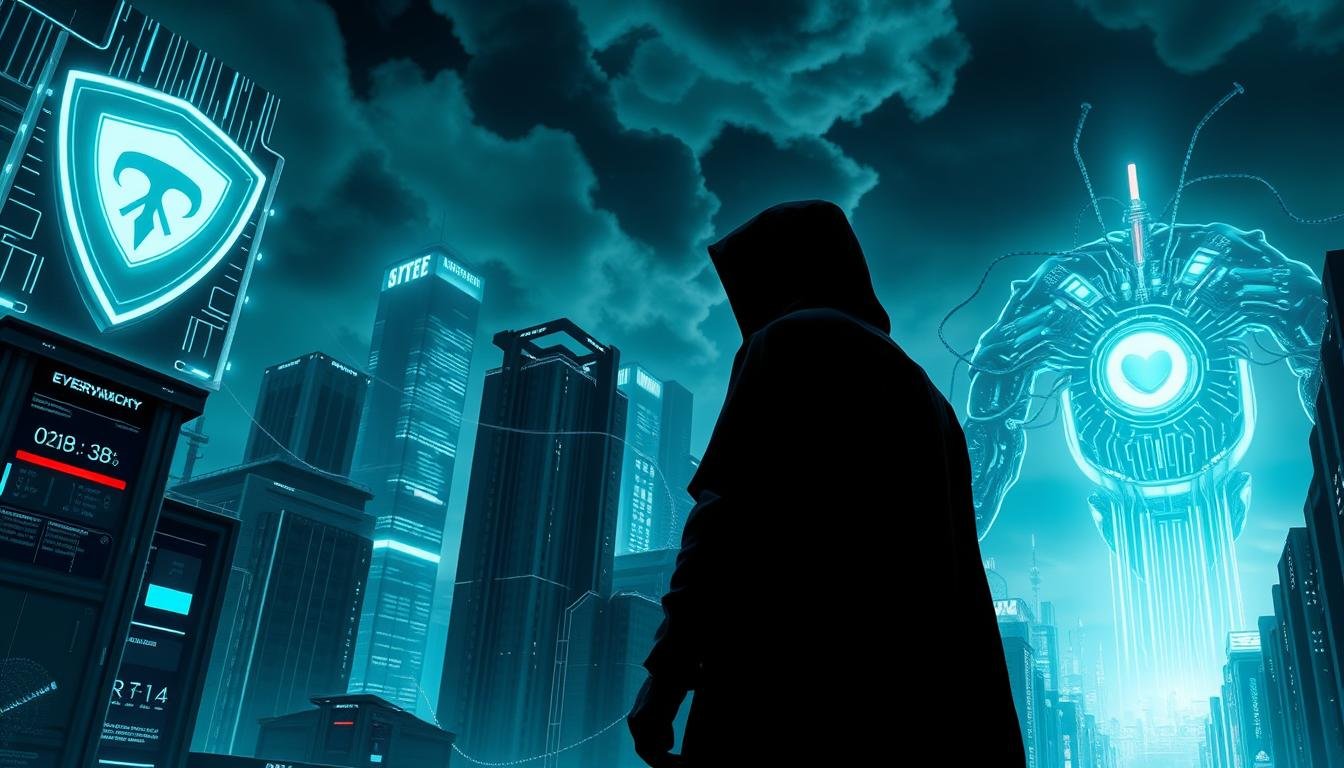

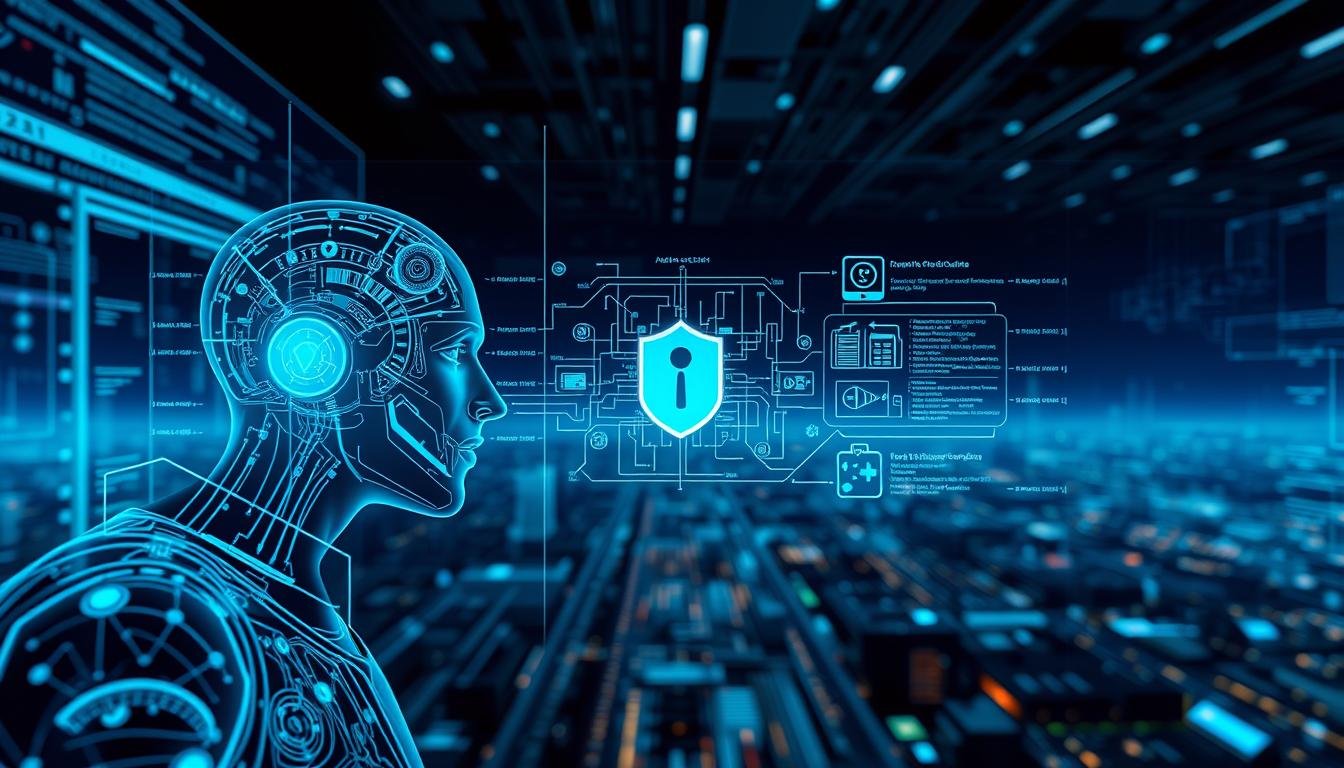


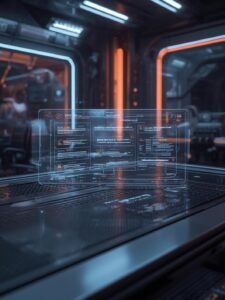



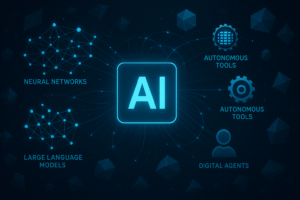
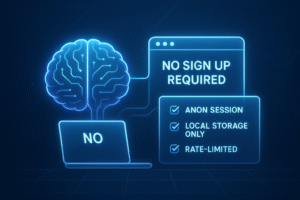
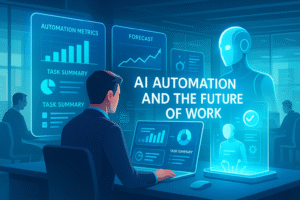

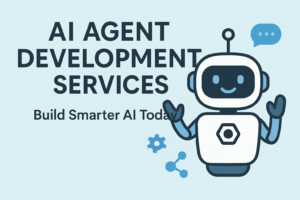
Post Comment